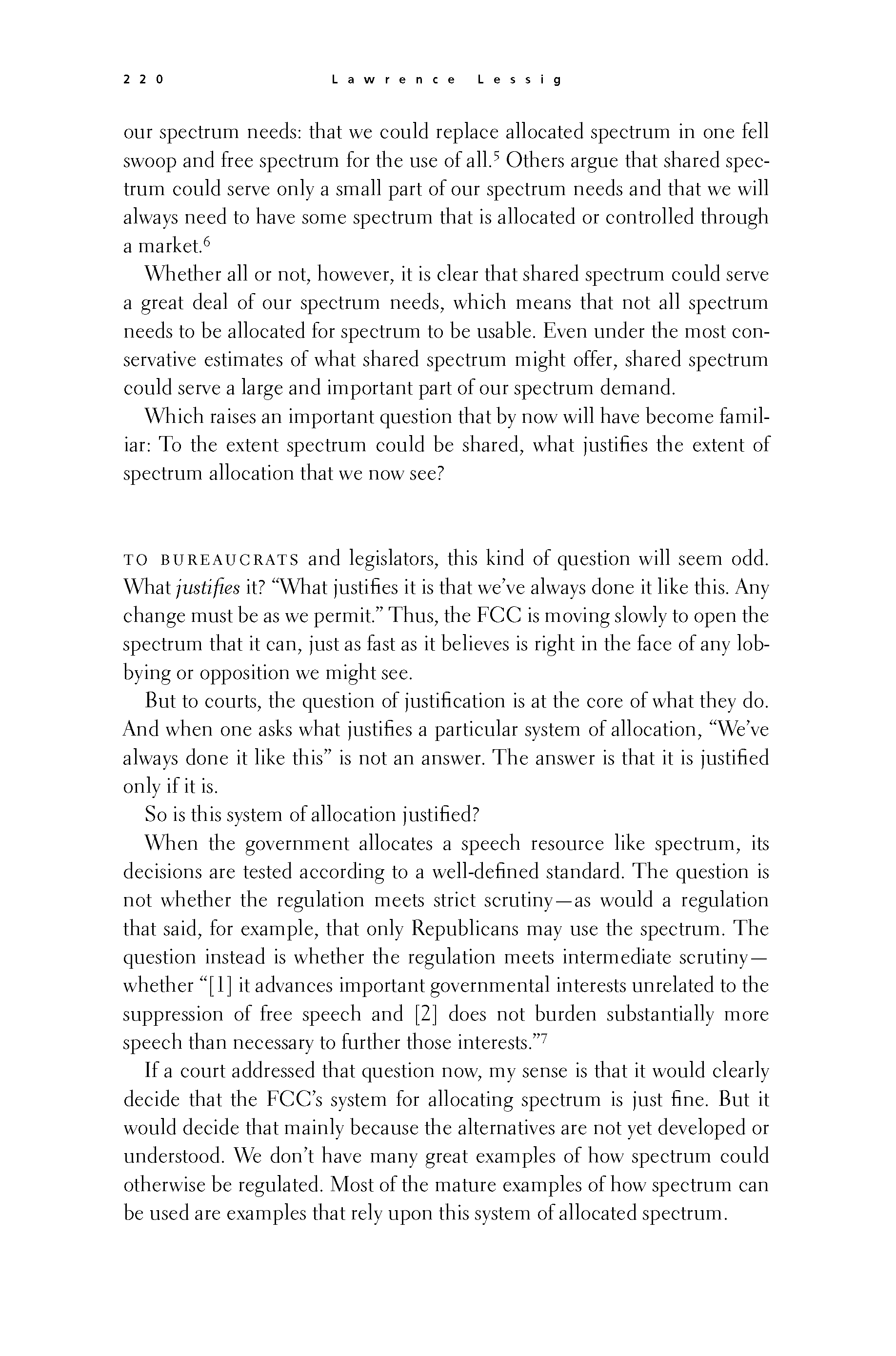 p219 _
-chap- _
toc-1 _
p220w _
toc-2 _
+chap+ _
p221
p219 _
-chap- _
toc-1 _
p220w _
toc-2 _
+chap+ _
p221
our spectrum needs: that we could replace allocated spectrum in one fell
swoop and free spectrum for the use of all.[12-5] Others argue that shared spec-
trum could serve only a small part of our spectrum needs and that we will
always need to have some spectrum that is allocated or controlled through
a market.[12-6]
Whether all or not, however, it is clear that shared spectrum could serve
a great deal of our spectrum needs, which means that not all spectrum
needs to be allocated for spectrum to be usable. Even under the most con-
servative estimates of what shared spectrum might offer, shared spectrum
could serve a large and important part of our spectrum demand.
Which raises an important question that by now will have become famil-
iar: To the extent spectrum could be shared, what justifies the extent of
spectrum allocation that we now see?
///\\\
To bureaucrats and legislators, this kind of question will seem odd.
What _justifies_ it? "What justifies it is that we've always done it like this. Any
change must be as we permit." Thus, the FCC is moving slowly to open the
spectrum that it can, just as fast as it believes is right in the face of any lob-
bying or opposition we might see.
But to courts, the question of justification is at the core of what they do.
And when one asks what justifies a particular system of allocation, "We've
always done it like this" is not an answer. The answer is that it is justified
only if it is.
So is this system of allocation justified?
When the government allocates a speech resource like spectrum, its
decisions are tested according to a well-defined standard. The question is
not whether the regulation meets strict scrutiny -- as would a regulation
that said, for example, that only Republicans may use the spectrum. The
question instead is whether the regulation meets intermediate scrutiny --
whether "(1) it advances important governmental interests unrelated to the
suppression of free speech and (2) does not burden substantially more
speech than necessary to further those interests."[12-7]
If a court addressed that question now, my sense is that it would clearly
decide that the FCC's system for allocating spectrum is just fine. But it
would decide that mainly because the alternatives are not yet developed or
understood. We don't have many great examples of how spectrum could
otherwise be regulated. Most of the mature examples of how spectrum can
be used are examples that rely upon this system of allocated spectrum.
[[220]]
p219 _
-chap- _
toc-1 _
p220w _
toc-2 _
+chap+ _
p221